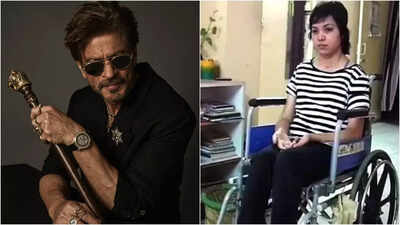
In a deeply emotional verdict, the
Bombay High Court
has upheld the compensation of Rs 62 lakh awarded to the family of
Charu Khandal
, a promising animator from Shah Rukh Khan’s
Red Chillies Entertainment
, who tragically succumbed to injuries from a hit-and-run accident. Calling her story “a heart-wrenching and tragic saga of a young aspiring professional woman,” the court reminded that while perfect justice is elusive, fairness must prevail.Charu Khandal had worked on Shah Rukh Khan’s Ra.One, was paralysed in 2012 accidentAccording to Law Trend, a division bench of Justices Girish Kulkarni and Advait Sethna dismissed the plea filed by Cholamandalam MS General Insurance Co. Ltd, which had challenged the Motor Accident Claims Tribunal’s (MACT) decision from November 2020. The tribunal had earlier awarded the compensation to Khandal’s family, recognising the long-lasting impact of her injuries.Khandal, who contributed to the visual effects of Shah Rukh Khan’s film Ra.One, was returning home from a celebratory party in March 2012 when a speeding car rammed into her autorickshaw in Mumbai’s Oshiwara. The accident left her paralysed from the neck down, a condition she lived with for five years before succumbing to septicaemia in 2017 at the age of just 28.
Judges call Charu Khandal’s case ‘a heart-wrenching and tragic saga’ of a young womanThe insurance company argued that her death occurred years after the accident and lacked a direct link to the injuries. The court, however, firmly rejected this argument, stating that her death was “a direct consequence of traumatic quadriplegia” caused by the accident.“The Motor Vehicles Act is a beneficial piece of legislation,” the court stated, emphasising that the constitutional right to a dignified life under Article 21 must be upheld. Quoting a Supreme Court ruling, the bench said, “Perfect compensation is hardly possible, but fair compensation ought to be the norm.”The court also took into account the Rs 18 lakh spent by Khandal’s family on medical care, which included physiotherapy and a full-time caregiver. When the insurer tried to challenge the bills on “hyper-technical” grounds, the court dismissed the objection, saying, “It would be extremely harsh, excessive and rather too pedantic an approach in such matters of life and death if we are to assess every single medical bill with mathematical accuracy.”

 7 hours ago
34
7 hours ago
34




























 English (US)
English (US)